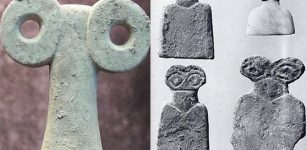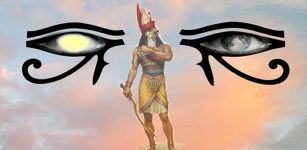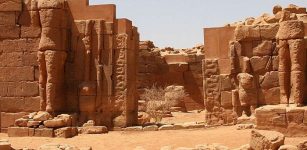Three Fun Paradoxes Created By Ancient Greek Philosophers To Puzzle Over
AncientPages.com - Ancient Greek philosophers used paradoxes for all sorts of reasons, from sharpening their dialectical skills and showing philosophical opponents were talking nonsense to serious philosophical inquiry – but also for fun.
Some paradoxes were lethal. Philetas of Cos’s epitaph tells us he died tormented by the “liar paradox”. And according to one biographer, Diodorus Cronus killed himself in 284 BC after failing to solve a paradox put to him by fellow philosopher Stilpo of Megara.
The School of Athens by Raphael, (1509–1511). Wiki Commons
These stories are fanciful, but they point to something maddeningly true about paradoxes: there cannot be a single, obvious solution. Sometimes there is no good solution. Sometimes there are too many good solutions. Paradoxes point to conceptual glitches or bugs. How to fix these bugs, or whether they can be fixed, is rarely obvious.
The three paradoxes that follow are some of the best-known examples from Ancient Greece.
1. The liar paradox
“This sentence is false.” Philosophers call that the “liar sentence”. Is it true? If you say “yes, the liar sentence is true”, then things are as it says – yet the liar sentence says it is false.
On the other hand, suppose you say “no, the liar sentence is false”. This means things are not as the liar sentence says. But this is exactly what it says, so in this sense the liar sentence is true.
In short, there are good reasons to say both that the sentence is true and that it is false. Yet no sentence can be both true and false.
This paradox was invented by the philosopher Eubulides of Miletus, who was famous for his paradoxes, in the 4th century BC. His own formulation has been lost, and what I give here is my reconstruction.
The liar paradox alienates us from everyday notions like truth, falsehood and self-referential language. But it also calls into question the idea, presupposed by question-and-answer dialectic (dialogue between people holding different points of view about a subject), that every question can be answered “yes” or “no”. It seems there are good reasons to answer both “yes” and “no” to some questions.
Some philosophers have concluded this means that both “yes” and “no” are good answers to the question “is the liar sentence true?”. They call this a “glut” of good answers. To apply the liar paradox to your life, when you ask or are asked questions, ask yourself: is there more than one right answer?
2. The horns paradox
Have you lost your horns? If you answer “yes”, you must have had horns that you have now lost. If you say “no”, then you have horns that you have not lost. Either way you answer, you suggest you had horns – but that is clearly false.
Questions are a key part of philosophy. But they’re also key to how we get information from other people. The liar paradox highlights that some questions have a more than one good answer. The horns paradox highlights another problem – questions have presuppositions.
If I ask “have you stopped eating meat?”, then I presuppose you no longer eat meat, but that you used to. These questions look like they should have a “yes” or “no” answer, but in fact there is a gap because we could deny the presupposition.
When you ask questions, or are asked questions, first ask yourself: what is being presupposed?
3. The sorites paradox
Here are 10,000 grains of sand. Do I have a heap? Yes, of course. I remove a grain, so now I have 9,999 grains. Do I have a heap? Yes. I remove another grain so I have 9,998. Do I have a heap? Yes.
Losing a single grain does not affect whether I have a heap. But reiterating this 9,997 more times, I have one grain. That should be a heap, but of course it is not. You could argue both that one grain is a heap, and that it is not. But nothing can be both a heap and not a heap.
Another of Eubulides’ greatest hits, the sorites (the “heaper”), uses a heap as an example. But it also heaps question upon question.
This paradox challenges us because some concepts have fuzzy edges. When we plug these fuzzy concepts into a question-and-answer dialectic, there are clear yes-or-no answers at the start and end of the sequence. Ten thousand grains is clearly a heap and one grain clearly is not. But there are no clear yes or no answers for some region in the middle.
The liar paradox suggests there might be gluts of good answers to yes or no questions; the horns that there might be gaps, where neither “yes” nor “no” is the correct answer. But the sorites shows that there may be gaps that come and go, with fuzzy-edged concepts. But how many of our concepts have fuzzy edges? And do fuzzy concepts track a fuzzy world?
Paradoxes highlight glitches in commonplace, everyday activities: asserting truths, asking questions, and describing objects. Thinking carefully about this is fun, certainly. But paradoxes should also make us sensitive to whether every apparently good question has exactly one good answer: some questions have more, some have none.
Provided by The Conversation
This article is republished from The Conversation under a Creative Commons license. Read the original article.
More From Ancient Pages
-
 Moses’ Secret Knowledge Of Superior And Forbidden Technology – Hundreds Of Chariots Hovering Over Sinai – Part 1
Ancient Mysteries | Sep 21, 2020
Moses’ Secret Knowledge Of Superior And Forbidden Technology – Hundreds Of Chariots Hovering Over Sinai – Part 1
Ancient Mysteries | Sep 21, 2020 -
 Ancient Medical Machine Ahead Of Its Time Hidden In Emperor’s Temple – Secret Science Knowledge Examined
Ancient Mysteries | Apr 20, 2018
Ancient Medical Machine Ahead Of Its Time Hidden In Emperor’s Temple – Secret Science Knowledge Examined
Ancient Mysteries | Apr 20, 2018 -
 Mysterious Deaths Around Empress Cixi – Cruel Tyrant Or Victim Of Propaganda?
Featured Stories | Apr 9, 2018
Mysterious Deaths Around Empress Cixi – Cruel Tyrant Or Victim Of Propaganda?
Featured Stories | Apr 9, 2018 -
 Native American Legend Of Apotamkin Teaches Children Obedience
Featured Stories | May 14, 2019
Native American Legend Of Apotamkin Teaches Children Obedience
Featured Stories | May 14, 2019 -
 Remarkable Ancient Statues From The Eye Temple – Unique Legacy From Tell Brak, Syria
Artifacts | Jul 20, 2018
Remarkable Ancient Statues From The Eye Temple – Unique Legacy From Tell Brak, Syria
Artifacts | Jul 20, 2018 -
 Bizarre Mummies And Skeletons That May Offer Evidence Strange Mythical Creatures Did Exist
Ancient Mysteries | Nov 16, 2018
Bizarre Mummies And Skeletons That May Offer Evidence Strange Mythical Creatures Did Exist
Ancient Mysteries | Nov 16, 2018 -
 Unravelling The Mystery Of Apollonius Of Tyana – Was He A Superhuman?
Ancient Mysteries | Sep 17, 2015
Unravelling The Mystery Of Apollonius Of Tyana – Was He A Superhuman?
Ancient Mysteries | Sep 17, 2015 -
 Unusual Parcel With 500-Year-Old Horn Container Discovered In South Africa Sheds Light On Pre-Colonial Khoisan Medicines
Featured Stories | Feb 15, 2023
Unusual Parcel With 500-Year-Old Horn Container Discovered In South Africa Sheds Light On Pre-Colonial Khoisan Medicines
Featured Stories | Feb 15, 2023 -
 Why Is Africa Called Africa?
Ancient History Facts | Dec 1, 2020
Why Is Africa Called Africa?
Ancient History Facts | Dec 1, 2020 -
 Archaeologists Discover Ancient Mayan Board Game – Here’s What It Can Teach Modern Educators
Featured Stories | May 19, 2023
Archaeologists Discover Ancient Mayan Board Game – Here’s What It Can Teach Modern Educators
Featured Stories | May 19, 2023 -
 Horus – One Of The Most Important Ancient Egyptian Gods And Symbol Of Rulership and Justice
Egyptian Mythology | Jun 26, 2018
Horus – One Of The Most Important Ancient Egyptian Gods And Symbol Of Rulership and Justice
Egyptian Mythology | Jun 26, 2018 -
 Mabon Festival And The Autumn Equinox Celebrated By Pagans
Ancient Traditions And Customs | Sep 19, 2024
Mabon Festival And The Autumn Equinox Celebrated By Pagans
Ancient Traditions And Customs | Sep 19, 2024 -
 Unusual High-Tech Machine In The Bible Offers Evidence Of Lost Ancient Advanced Civilization
Ancient Mysteries | Aug 18, 2018
Unusual High-Tech Machine In The Bible Offers Evidence Of Lost Ancient Advanced Civilization
Ancient Mysteries | Aug 18, 2018 -
 Kingdom Of Nubia: Pyramids And Priceless Secrets Of A Civilization Forgotten Long Time Ago
Civilizations | Feb 13, 2018
Kingdom Of Nubia: Pyramids And Priceless Secrets Of A Civilization Forgotten Long Time Ago
Civilizations | Feb 13, 2018 -
 Skilled Nabataeans Celestially Aligned Petra’s Wonderful Architecture
Featured Stories | Mar 6, 2014
Skilled Nabataeans Celestially Aligned Petra’s Wonderful Architecture
Featured Stories | Mar 6, 2014 -
 Sacred Mount Meru: Home Of The Gods And Center Of The Universe
Featured Stories | Feb 7, 2019
Sacred Mount Meru: Home Of The Gods And Center Of The Universe
Featured Stories | Feb 7, 2019 -
 Will-o’-the-wisp: Eerie Lights Over Swamps And Marshes That Frightened And Led People Astray
Featured Stories | Apr 23, 2020
Will-o’-the-wisp: Eerie Lights Over Swamps And Marshes That Frightened And Led People Astray
Featured Stories | Apr 23, 2020 -
 Mysterious Ancient Stone Structures Discovered In Illinois Remain Unexplained – Archaeologists Say
Featured Stories | May 26, 2024
Mysterious Ancient Stone Structures Discovered In Illinois Remain Unexplained – Archaeologists Say
Featured Stories | May 26, 2024 -
 Mighty Viking Harald Hardrada – The Last Great Viking And Most Feared Warrior Of His Time
Featured Stories | Jun 9, 2020
Mighty Viking Harald Hardrada – The Last Great Viking And Most Feared Warrior Of His Time
Featured Stories | Jun 9, 2020 -
 Mysterious Yamacutah – A Sacred Native American Indian Shrine
Artifacts | Sep 18, 2020
Mysterious Yamacutah – A Sacred Native American Indian Shrine
Artifacts | Sep 18, 2020

